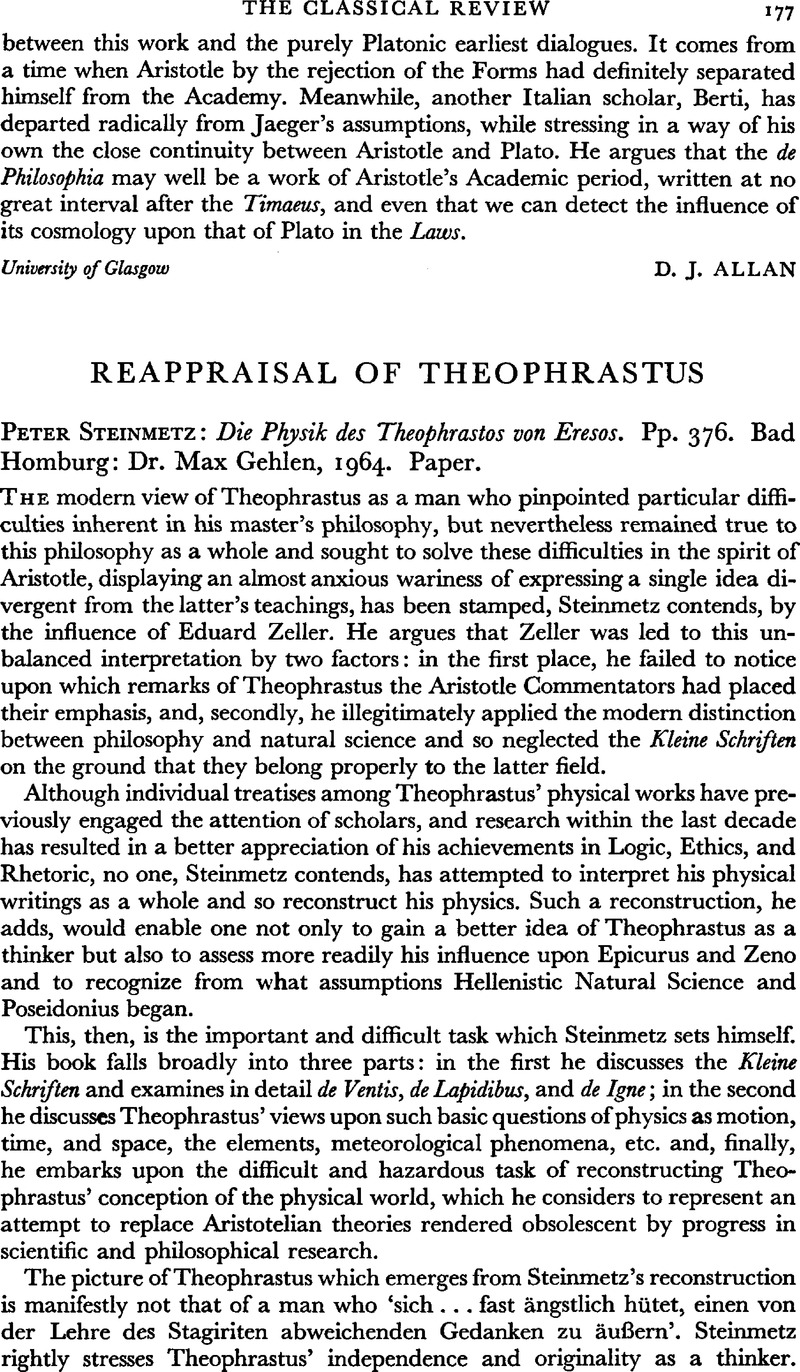No CrossRef data available.
Article contents
Reappraisal of Theophrastus - Peter Steinmetz: Die Physik des Theophrastos von Eresos. Pp. 376. Bad Homburg: Dr. Max Gehlen, 1964. Paper.
Published online by Cambridge University Press: 27 February 2009
Abstract

- Type
- Reviews
- Information
- Copyright
- Copyright © The Classical Association 1966
References
1 Although Aristotle at de Gen. et Corr. 326b6–28 severely criticizes the hypothesis that the agent acts by penetration of the pores of the patient and regards the assumption of pores in this connexion, whether ‘empty’ (κενο⋯) or ‘full’ (πεπληρωμ⋯νοι) as περ⋯εργον, ψε⋯δος, and γελοῖον, he nevertheless recognizes that pores in another sense must be reckoned with and endeavours to harmonize this concept with his physics generally (cf. G.C. 326b34). Furthermore, in the Posterior Analytics (94b28) Aristotle makes use of the theory of pores to explain the propagation of light. The theory is not his own, but the fact that he is willing to set it up here as a working hypothesis suggests that in this connexion he did not regard it at all as γελοῖον or περ⋯εργον.


